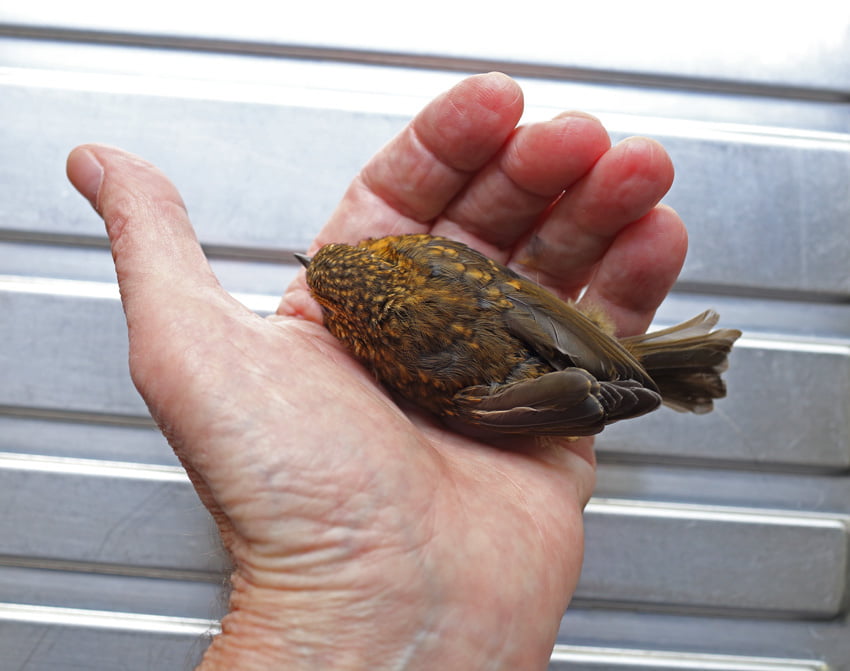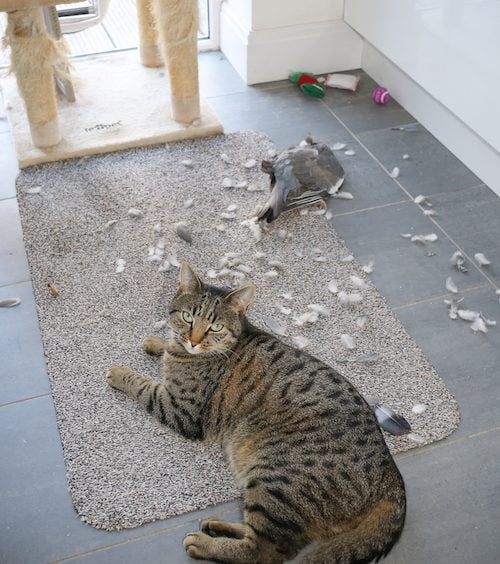My cat caught a bird, and it is still alive. This is the kind of statement that people make on internet forums when they are seeking advice. It happens quite a lot. The advice has to be practical and sensible. And I would say pragmatic too. The first step is to get your cat off the bird. That might be a bit tricky as domestic cats don’t like their prey scavenged from them in line with all the wild cat species. There may be some growling. The cat might grab the bird and take it away to try and consume a part of it.

Veterinary help
I suspect that most cat owners faced with this situation are NOT going to race off to their veterinarian to see if they can save the bird’s life. It would require an emergency appointment which pushes up the cost substantially and by the time you get there the bird might have died. Although some vets, knowing the circumstances might make it a no charge service.
Once you have explained things to the veterinary clinic it would not surprise me if you were turned away. If not, it is also likely that they would see you and your injured bird but decide to euthanise the animal. They might charge for that, or the euthanasia service might be free depending on the attitude of the vet.
So, vets are probably out.
RSPCA in the UK or other countries with a similar charitable animal service
In the UK you could call the RSPCA, but they would quite possibly turn you away and explain that is not worth their time to come out. If all cat owners called the RSPCA when their cat brought in mouse, and they came out to save the rodent the organisation would cease to function. There is no difference between birds and mice in terms of doing the right thing morally.
The same would apply to any other organisation in other countries concerned with animal welfare who might help. Although you might get lucky. However, my research came up with this: The RSPCA are able to usefully provide us with some data on this.
They estimate that a minimum of 0.3 million birds die which have been taken from cats and released. They are able to provide information about birds injured by cats and taken to their veterinarians. They say that the mortality rate is 78%. That’s almost 8/10 birds die after an attack by a cat and taken to the RSPCA.
This is an overall figure taken from 3,597 cases. It includes birds taken to RSPCA centres, those that died in transportation to the centre, those that were euthanised on arrival and those that died after being triaged.
On average individual birds survive for three days before dying or being euthanised. Juvenile birds are more likely to survive and be released.
The information tells us that a lot of people do take birds to the RSPCA (but what percentage?) and they accept them, but the normal outcome is the death of the bird. The information comes from a study on the Research Gate website called: Survival rates of cat-attacked birds admitted to RSPCA wildlife centres in the UK: Implications for cat owners and wildlife rehabilitators.

Self-help
That leaves the person alone to deal with the problem. Domestic cats eat birds that they have caught far less than they do mice in my experience. Some cats might never eat the bird that they have caught and killed. This means that once the cat has played with the bird to the point where it has died it is game over. The problem of a surviving bird is resolved.
If you catch a bird under these circumstances, I’d take it outside or if you are already outside, I would grab it carefully and gently if practical (see below) and walk with it away from your cat and place it in what you consider to be a safe place and watch and wait.
If it is possible to confine your cat during this time so much the better. This method is relying on the bird to recover and heal themselves which is unlikely. Even birds that look uninjured might be injured with no realistic chance to recover. Or they die of shock (see below). They might even fly off but how long will the survive in the wild?
Shock symptoms and advice from a birding website
The Bird Watching Pro website helpfully provides us with information on how to tell if a bird is in shock. The condition is characterised by the feathers being fluffed up. The bird will be unresponsive, and they will be breathing slowly. If you see this you might attempt recovery by placing the bird in a quiet, dimly lit environment which is both warm and humid if possible.
In addition, a bird in shock will not try and escape if people approach. They say that a stunned bird will be breathing out its mouth and slowly.
Moving an injured bird
If you move an injured bird, you should place it into a box, cover it with a towel or a breathable lid. This should be done with great care because it is possible to do more harm than good. They confirm that more often than not an injured bird will die both from injuries and shock.
If a bird is in shock but apparently without injury it should recover within a few minutes. They state, however, that if a bird is severely injured and thrashing around on the ground then you should not consider helping it.
It might seem a bit cold-hearted to leave an injured bird, but it is practical, and I believe the only genuine course of action often. I believe that you have to accept the simple fact that once a cat has caught a bird it is likely that the bird will die at some stage afterwards unless you are lucky.
The prognosis is bad as they say. The endgame is predestined. It is written.
If you have the time and inclination and enough money to be able to lose it on a failed enterprise, by all means race down to your local veterinarian and see what they can do. Good for you. I’d expect the trip to cost more than $100 or £100 in the UK, but it might be free of charge.
Below are some more pages on birds and cats.

